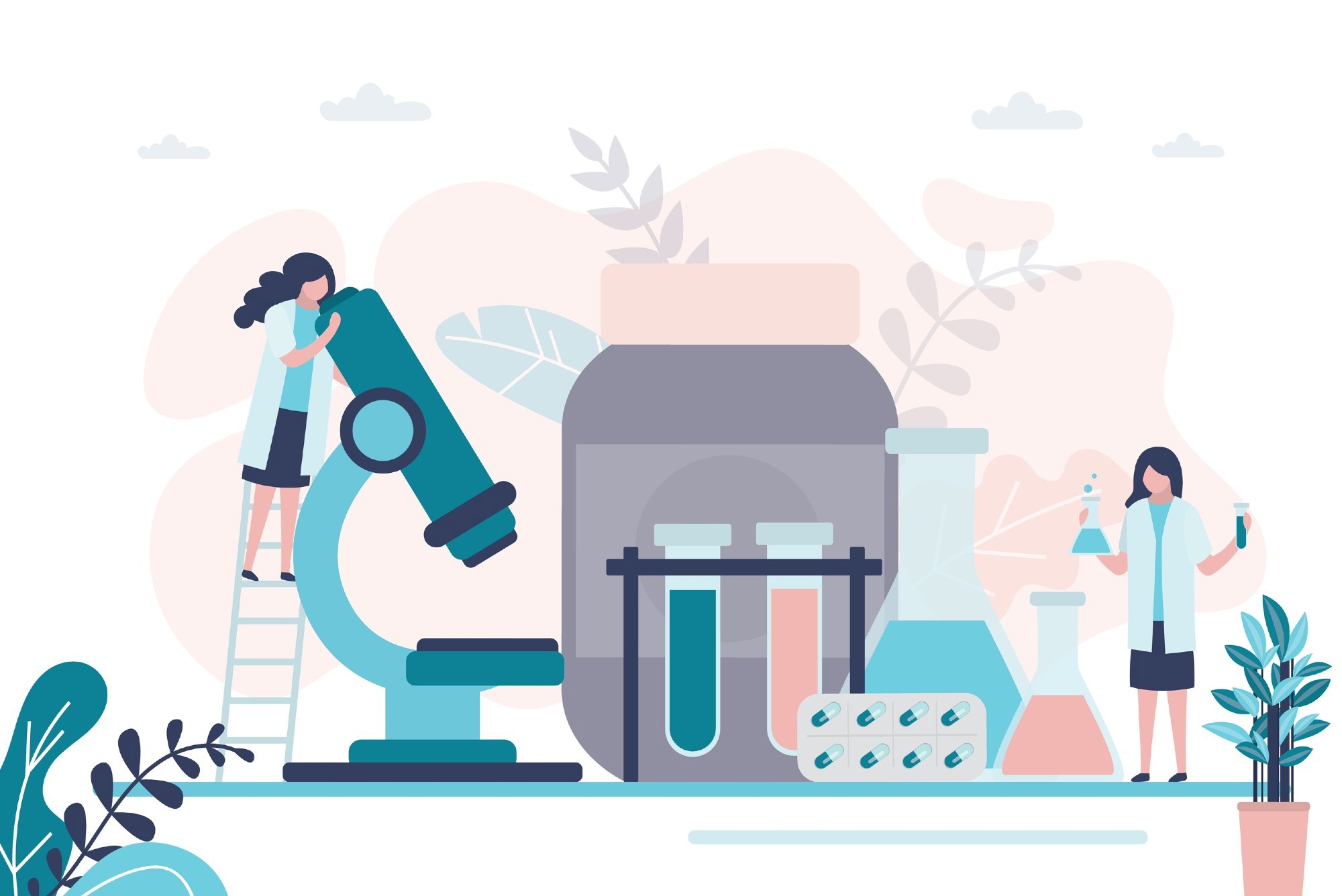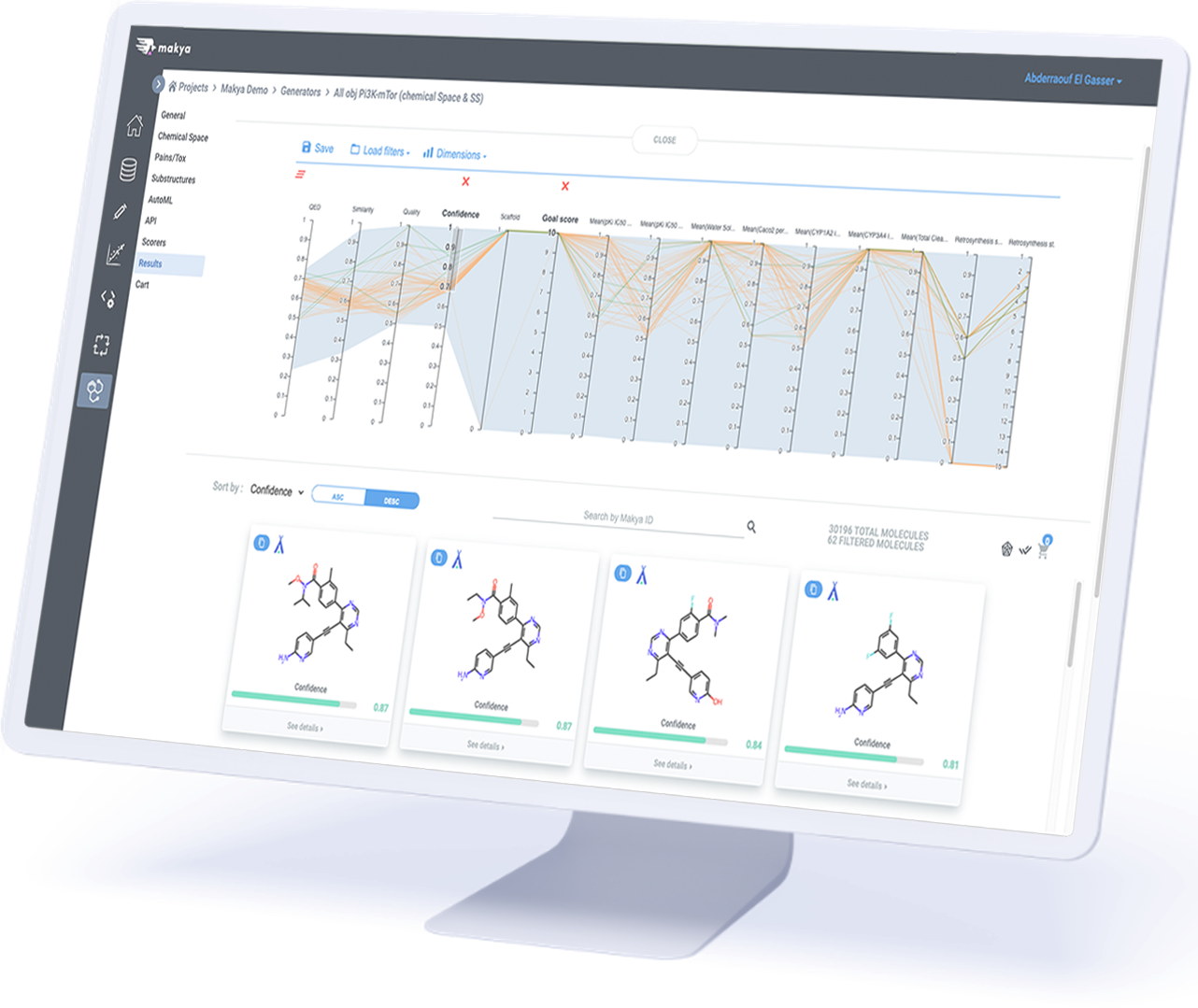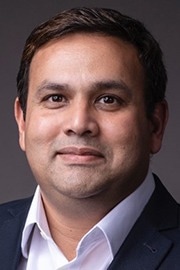As part of our SLAS Europe 2022 coverage, we speak to Dr. Sree Vadlamudi, Vice President BD at Iktos, about how we can adopt AI to help foster productivity within pharmaceutical research as well as the current challenges faced by the drug discovery sector.
Please can you introduce yourself and tell us about your role at Iktos?
I am Sree Vadlamudi, Vice President, Head of Business Development EU, RoW at Iktos. I lead strategic business development outreach, alliance management, marketing & communication activities at Iktos.
Iktos is an innovative company specializing in the development of artificial intelligence. Can you tell us more about the history of Iktos and your mission as a company?
Incorporated in 2016, Iktos has developed an innovative and proprietary technology platform for drug design and discovery based on the concepts of deep generative modeling. Today Iktos is a leading player in AI-based generative chemistry, delivering value in 50-plus real world research collaborations with some of the most eminent pharmaceutical companies globally.
Soon after its inception, Iktos started its first collaboration project in 2017. Initial success and first real-world validation of the technology was achieved in 2018 in collaboration with Servier. In 2019, Iktos established its presence in North America by incorporating Iktos Inc. and secured seed funding, as well as non-dilutive finances to grow its AI for de novo drug design technology and software. In the same year, Iktos won its first client for Makya, Iktos SaaS generative AI software platform. In 2020, Iktos released Spaya, Iktos synthesis planning software, and made it available publicly for users to use and evaluate.
Iktos has developed its own HPC platform that enables parallelizing computation on GPU and CPU on demand and can easily be scaled up to meet any computation needs. All Iktos technologies can also easily be deployed on collaborators' virtual private cloud (VPC) either on AWS, Azure, or Google if needed.
Iktos's mission is to provide solutions that foster productivity improvements in small molecule discovery.
Artificial intelligence for new drug design
Iktos primarily operates in the early stage of the drug discovery value chain. Can you tell us more about what this entails?
Iktos technology platform enables efficient exploration of chemical space in early and late-stage drug discovery programs by generating valuable ideas for chemists in line with target product profile (TPP) to overcome multi-parametric optimization (MPO) challenges.
Iktos is the only company offering state-of-the-art, ready-to-use generative modeling solutions with built-in synthetic accessibility for successful drug discovery projects. From hit discovery to lead generation and optimization, our technology integrates ligand and structure-based approaches to design new molecules solving collaborators' project objectives. Our proprietary algorithms excel at multi-parametric optimization (MPO).
The drug discovery sector, particularly concerning designing new drugs, is technically challenging. What are some of the main challenges that need to be overcome when designing new drugs, and how can Iktos' solutions help with these?
Designing and optimizing a compound with well-balanced biological activity, selectivity, and phys.chem properties constitute a significant challenge in drug discovery. This phenomenon is often referred to as multi-parametric optimization (MPO).
At Iktos, we have developed a proprietary, disruptive, AI-based generative modeling technology for ligand and structure-based de novo drug design, focusing on multi-parametric optimization (MPO). Our proprietary technology is built upon the latest developments in deep learning algorithms for de novo drug design as well as AI-driven synthesis planning. Our generative modeling technology coupled with synthesis planning can be applied to the early-stage drug discovery value chain ranging from hit generation or scaffold hopping projects to lead generation and optimization.
In a very short timeframe, we can design novel, diverse, druggable, and synthesizable molecules that are optimized to match the project's target product profile (TPP).

Image Credit: Naumova Marina/Shutterstock.com
Drug discovery is hugely costly to a company. How does the Iktos technology platform enable major productivity gains in upstream pharmaceutical research and development?
Pharmaceutical drug discovery and drug development is a lengthy and costly process, with a small fraction of discovered drugs successfully reaching the market1. Recent advancements in AI-driven drug discovery technology space appear to contribute to productivity gains in drug discovery and development2. AI contributes to the reinvention of the drug discovery process, opens up new avenues for researchers, and can help accelerate timelines and reduce costs for a molecule to reach clinical trials by almost 30%.3
We at Iktos firmly believe that AI has the potential to transform the drug discovery process to achieve time and cost efficiencies, enhance molecular diversity, and thereby improve the chances of clinical success. By combining AI with physics-based methods (for example, accurate predictions of binding affinities), automation (robotics platform for synthesis and screening) could help improve complex, iterative search and optimization problems in drug design and discovery.
What are some of the software products that Iktos offers to foster productivity improvement in small molecule discovery?
Iktos is developing a proprietary and innovative solution based on deep learning generative models, which enables, using existing data, to design molecules that are optimized in silico to meet all the success criteria of a small molecule discovery project. Iktos offers its technology both as professional services and as a SaaS software platform.
Makya is the first user-friendly SaaS platform for AI-driven de novo drug design focused on Multi-Parametric Optimization (MPO) for ligand and structure-based projects. It enables the design of novel and easy-to-make compounds in line with a multi-objective blueprint with unprecedented speed, performance, and diversity.
Powered by Iktos proprietary retrosynthetic analysis AI, Spaya performs an exhaustive analysis of all possible synthetic routes for a given compound and ranks them according to various metrics of synthetic accessibility.
Spaya API: Spaya retrosynthesis AI engine available through an API in a scalable infrastructure to assess the synthetic feasibility of thousands or millions of molecules.

Image Credit: Iktos
During SLAS EU 2022, you are hosting a talk titled 'Synergetic Drug Design using AI and Automation'. What can audiences expect to learn from this event?
Iktos's ambition is to make a difference in drug discovery by combining AI and Robotics. In 2021, Iktos received significant non-dilutive financing for building an AI-driven automated synthesis platform with a robotics hardware solution. This closed-loop drug discovery platform can potentially drastically improve the design-make-test-analysis cycle times in drug discovery. I will be presenting the details of Iktos offerings in AI and Automation along with case studies.
The COVID-19 pandemic put a stop to many in-person conferences and exhibitions. What is the importance of being able to host talks like these in person rather than solely online?
The COVID-19 pandemic had a major impact on all walks of life, including conferences and exhibitions. Getting back to in-person events such as SLAS EU 2022, being able to deliver talks, and exhibiting a booth is quite exciting as I personally feel that virtual events cannot replace one-to-one interactions.
Looking ahead, what involvement do you believe AI will play in medicinal chemistry and drug design? With increased attention, will we see more companies turning to automated solutions?
AI has the potential to transform drug discovery and does what humans do, but more efficiently, more quickly, and at a lower cost. In addition, AI is bringing disruptive change in drug design through fast, accurate & comprehensive chemical space navigation.
Large global pharma companies such as Pfizer, Takeda, and AstraZeneca have engaged in multiple partnerships with AI companies in the drug discovery and development space. I think that more and more companies may want to explore closed-loop automated drug discovery solutions such as AI combined with robotics (for automated synthesis and screening) to improve complex, iterative search and optimization problems in drug design and discovery.

Image Credit: metamorworks/Shutterstock.com
Are you hopeful that we will see new therapeutics being bought to market with continued innovation within the drug discovery space? What would this mean for global health?
A recent report in Nature Reviews Drug Discovery4 indicates that a growing number of New Chemical Entities (NCEs) are being discovered using AI/ML and innovation in the drug discovery space. Ultimately, streamlining drug discovery and development with the help of innovative technologies such as AI/ML would contribute toward productivity gains in the upstream R&D and ultimately benefit the global health care sector.
What is next for Iktos? Are there any exciting projects coming up that you are involved in?
Iktos's ambition is to make a difference in drug discovery by combining AI and Robotics. We hope to share further exciting details about our AI and robotics offerings in the near future.
Visit our website for more: https://iktos.ai/
About Sree Vadlamudi
Sree is the Vice President, Head of Business Development EU, and RoW. He leads strategic business development outreach, alliance management, marketing & communication activities at Iktos. Sree has a successful track record in Strategic Business Development, Technology Commercialisation and Alliance Management positions with increasing responsibility in the bio-pharma industry.
Sree has been instrumental in securing and managing partnerships with biotechs and pharma as well as maximising the value of AI-based technology platforms and the growth of the business. Sree also held senior research management positions at biotechs and virtual biotechs. He holds PhD in Medicinal Chemistry, and MBA with merit from Lancaster Business School.